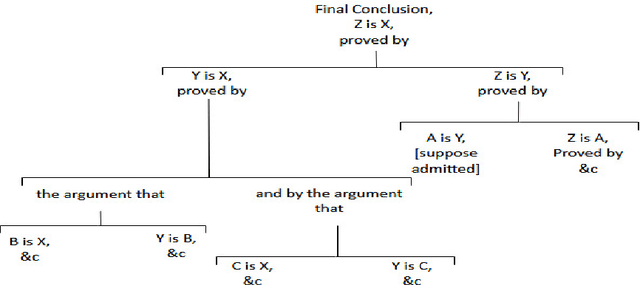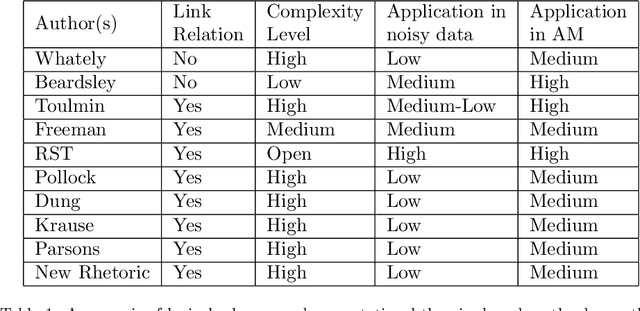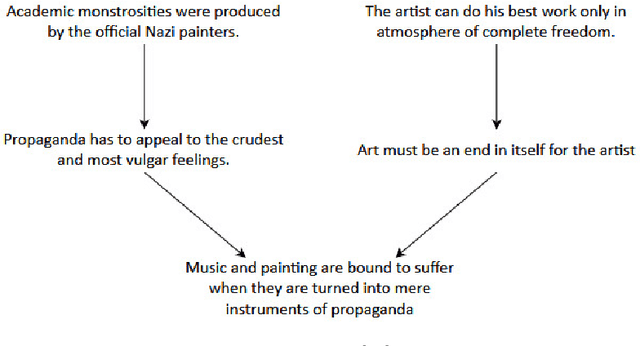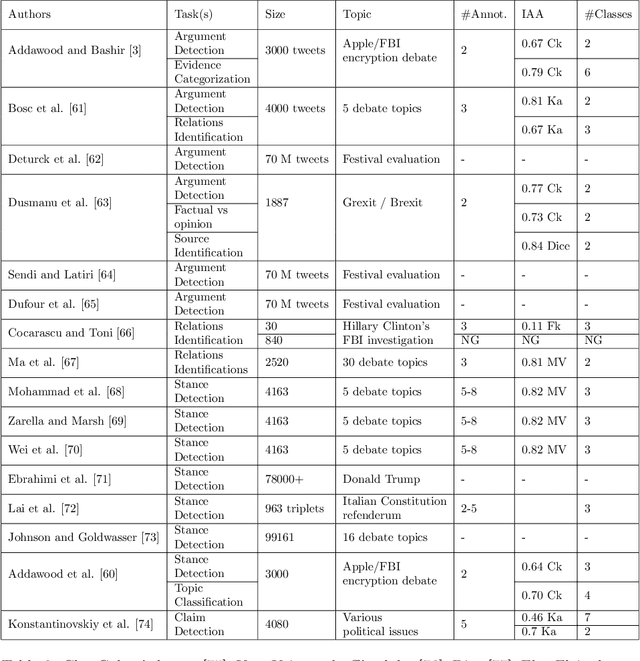The evolution of argumentation mining: From models to social media and emerging tools
Paper and Code
Jul 04, 2019



Argumentation mining is a rising subject in the computational linguistics domain focusing on extracting structured arguments from natural text, often from unstructured or noisy text. The initial approaches on modeling arguments was aiming to identify a flawless argument on specific fields (Law, Scientific Papers) serving specific needs (completeness, effectiveness). With the emerge of Web 2.0 and the explosion in the use of social media both the diffusion of the data and the argument structure have changed. In this survey article, we bridge the gap between theoretical approaches of argumentation mining and pragmatic schemes that satisfy the needs of social media generated data, recognizing the need for adapting more flexible and expandable schemes, capable to adjust to the argumentation conditions that exist in social media. We review, compare, and classify existing approaches, techniques and tools, identifying the positive outcome of combining tasks and features, and eventually propose a conceptual architecture framework. The proposed theoretical framework is an argumentation mining scheme able to identify the distinct sub-tasks and capture the needs of social media text, revealing the need for adopting more flexible and extensible frameworks.
 Add to Chrome
Add to Chrome Add to Firefox
Add to Firefox Add to Edge
Add to Edge